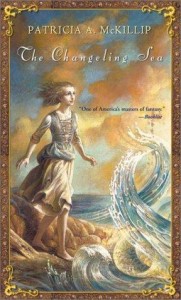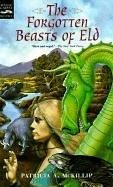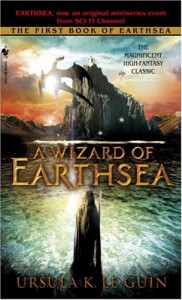More on Epic Fantasy
Yesterday I shared some thoughts on “epic fantasy” and whether—or not—the reason JRR Tolkien’s The Lord of the Rings or George RR Martin’s A Game of Thrones have been so successful is because “we’re tired of war.” These thoughts were sparked by a guest post by Daniel Abrahams on the Orbit blog—but also arose from my earlier Big Idea post on John Scalzi’s Whatever in 2010.
(By the way, is there a significant trend with “RR” monikers and hugely successful epic fantasy authors: i.e. should I consider changing my name by deed pole to HRR Lowe or Helen RR Lowe? 😉 )
OK, back on topic. The thrust of my premise, in summary, is that stories such as The Lord of the Rings and A Game of Thrones speak to us as readers because of the way in which the internal conflicts of the protagonists, juxtaposed with the external struggles in which they are engaged, speak to our human condition. One obvious way of exploring those struggles and illuminating the associated human issues is through the large-scale wars that characterize the epic fantasy genre.
Another comment that caught my attention though was one by Paul Jessup that asked: ” … what about the pre-80′s epic fantasies that didn’t involve OMG LARGE SCALE WARS? Like Forgotten Beasts of Eld, Riddlemaster, Earthsea books, etc, etc.”
 I have just been re-reading Patricia McKillip’s The Changeling Sea and thinking all over again how much I love both that book and others that I consider to be “classic McKillip”—which for me include exactly the titles cited by Jessup, i.e. The Forgotten Beasts of Eld and The Riddlemaster of Hed trilogy. I also still rate Ursula Le Guin’s initial Earthsea trilogy (A Wizard of Earthsea, The Tombs of Atuan, The Farthest Shore) as amongst the finest Fantasy I’ve read. But are they epic fantasy? With the exception of Patricia McKillip’s The Riddlemaster of Hed trilogy, I am not persuaded that they are.
I have just been re-reading Patricia McKillip’s The Changeling Sea and thinking all over again how much I love both that book and others that I consider to be “classic McKillip”—which for me include exactly the titles cited by Jessup, i.e. The Forgotten Beasts of Eld and The Riddlemaster of Hed trilogy. I also still rate Ursula Le Guin’s initial Earthsea trilogy (A Wizard of Earthsea, The Tombs of Atuan, The Farthest Shore) as amongst the finest Fantasy I’ve read. But are they epic fantasy? With the exception of Patricia McKillip’s The Riddlemaster of Hed trilogy, I am not persuaded that they are.
Personally, I am not a great one for definition—the main questions for me are always: “was this book a good read?” and “did I love it?” But, but I can’t help feeling that in order to be considered epic fantasy the story has to in some way address the epic sweep of events, encompassing nations, cultures and the “winds of change sweeping through the corridors of power”—in whatever way seems appropriate to the context of the story.
 I believe that Patricia McKillip’s Riddlemaster trilogy (i.e The Riddlemaster of Hed; Heir of Sea and Fire; and Harpist in the Wind) achieves this epic sweep, but to me The Forgotten Beasts of Eld, like The Changeling Sea operates at a more personal level, i.e. the focus of the story is the personal change and growth of the central protagonist and although in Eld—but not Changeling—there are certainly larger events in the background, these are peripheral to that personal tale. And particularly when I look at McKillip’s work (even the Riddlemaster trilogy, although it is muted there) both the scope and structure of the storytelling, as well as the language and imagery of the writing, speak far more to the fairytale tradition than they do to epic fantasy.
I believe that Patricia McKillip’s Riddlemaster trilogy (i.e The Riddlemaster of Hed; Heir of Sea and Fire; and Harpist in the Wind) achieves this epic sweep, but to me The Forgotten Beasts of Eld, like The Changeling Sea operates at a more personal level, i.e. the focus of the story is the personal change and growth of the central protagonist and although in Eld—but not Changeling—there are certainly larger events in the background, these are peripheral to that personal tale. And particularly when I look at McKillip’s work (even the Riddlemaster trilogy, although it is muted there) both the scope and structure of the storytelling, as well as the language and imagery of the writing, speak far more to the fairytale tradition than they do to epic fantasy.
 Ursula Le Guin’s Earthsea trilogy is also primarily focused at the personal level—the central protagonists in all three books are involved in events where both self-realization and overcoming the (more fallible) self are the core of the tale. Admittedly, an element of “saving the world” creeps into the The Farthest Shore and both that book and A Wizard of Earthsea are strongly focused around the quest/hero’s journey—but these tropes are as common to folklore and fairytale as they are to epic sagas.
Ursula Le Guin’s Earthsea trilogy is also primarily focused at the personal level—the central protagonists in all three books are involved in events where both self-realization and overcoming the (more fallible) self are the core of the tale. Admittedly, an element of “saving the world” creeps into the The Farthest Shore and both that book and A Wizard of Earthsea are strongly focused around the quest/hero’s journey—but these tropes are as common to folklore and fairytale as they are to epic sagas.
I really love all these stories, but I don’t think of them as epic fantasy. Then again, they don’t have to be: “epic”, after, all is only one very small corner of the fantasy ‘verse. I do agree with Paul Jessup though, that McKillip and Le Guin provide excellent examples of outstanding fantasy that is not focused on large-scale wars. In fact, war-based conflict does not feature in either The Changeling Sea or the Earthsea books at all.
So does a book have to be about large-scale war to qualify as epic fantasy? I don’t believe so, but I do feel its has to encompass, in some way, the grand sweep of events—and large-scale war can serve as convenient shorthand for that.
—
For more you can also read:








For whatever definitions are worth, I do consider epic fantasy to be sweeping and perhaps world altering. I love those McKillips and LeGuin books, but I don’t consider them epic fantasy. They are just great fantasy novels.
Yes, I agree, the world is—or should be—changed in some way (& overall for the better, although perhaps not completely happily for any or all protagonists, i.e. Frodo) at the conclusion of an epic fantasy. And very happily agree that the McKillips and Le Guins on my shelf are all great fantasy reads.:)